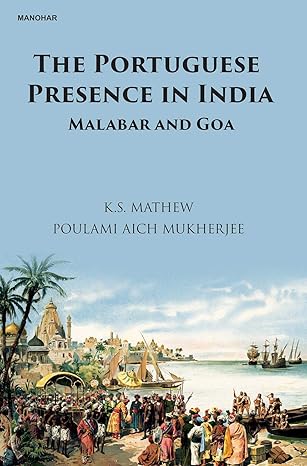The Portuguese Presence in India: Malabar and Goa
no information available
The Portuguese mariners under Vasco da Gama in search of spices landed on the Malabar Coast at the fag end of the fifteenth century. Slowly they established factories fortresses and other commercial establishments in places allotted to them by the local rulers while their missionary zeal brought them in contact with people of the Malabar Coast both non-Christians as well as St. Thomas Christians. The economic social and cultural legacy of the Portuguese interaction with the Malabar Coast is clearly discernible in the geographic segment now known as Kerala. Once the Portuguese obtained territorial possessions outside the Malabar Coast they commenced to establish political control and introduced European administrative apparatus in Asia. However these colonies could not be kept under the Portuguese sway forever. They made attempts to liberate themselves from the colonial authority of the Portuguese finally leading to their liberation. During the Portuguese presence in India for over 450 years innumerable social transformations took place. This book is an attempt to explore the themes related to economy trade commercial ventures urbanization socio-cultural interactions as well as the various stages of movements connected with the liberation of Portuguese settlements in India. About the Author K.S. Mathew obtained his Ph.D. from Jawaharlal Nehru University New Delhi. He was founder head and Professor at the Department of History Pondicherry Central University and has 27 books to his credit. Poulami Aich Mukherjee is Director Research Centre and Assistant Professor at Postgraduate Department of History & Research Centre Assumption College Autonomous (affiliated to Mahatma Gandhi University) Changanacherry Kottayam Kerala.
... Read more Read less










